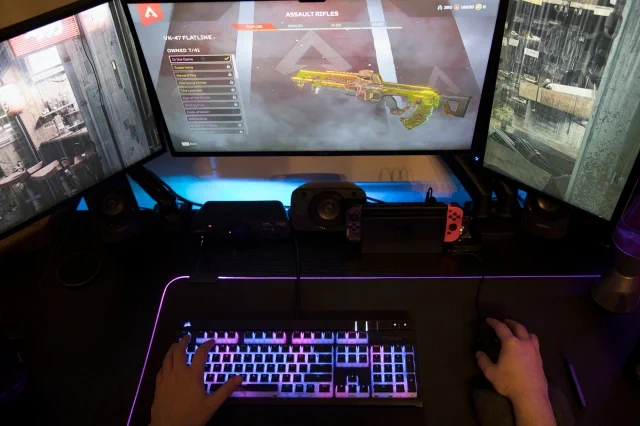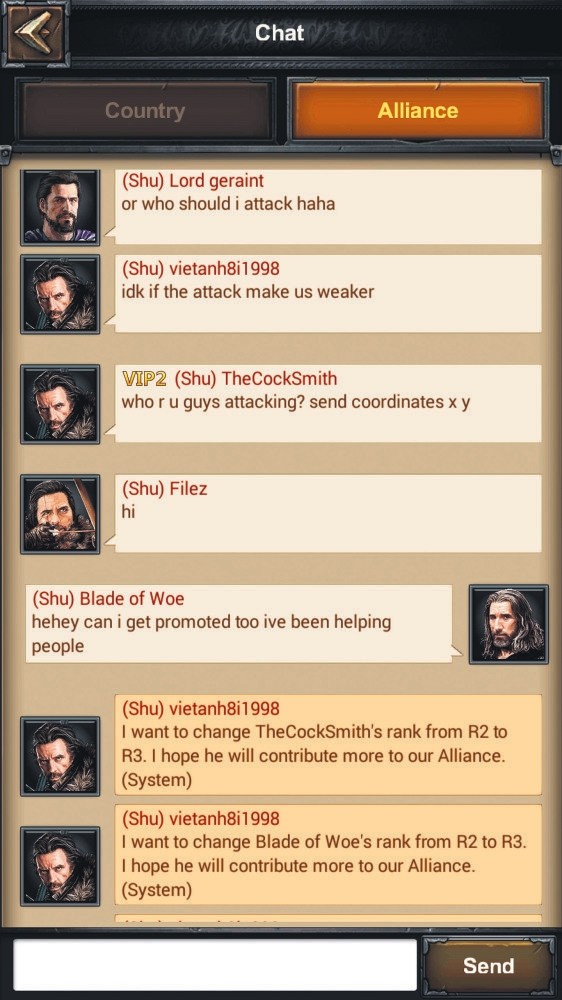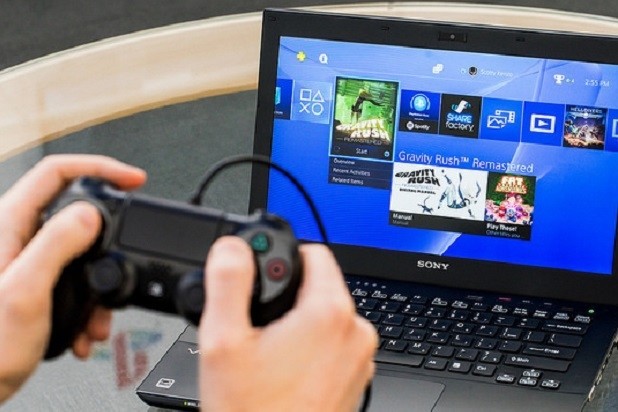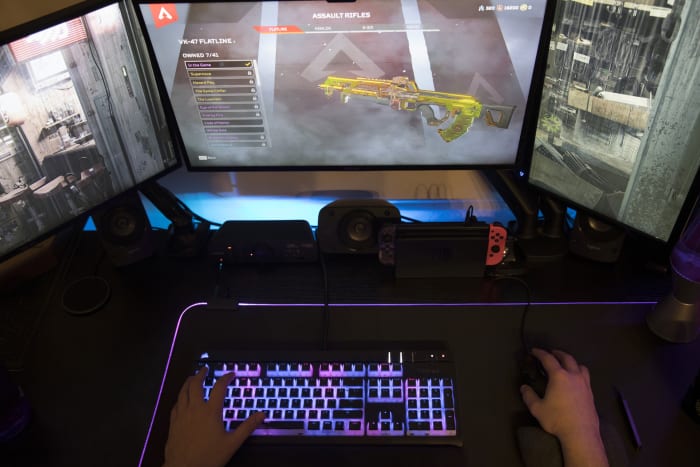Online Gaming and GRU | Mass killings, Espionage, and the Online Gaming Chats
#FBI FBI #DOJ DOJ #GRU Counterintelligence #Counterintelligence Online Gaming and GRU - Google Search shar.es/afDyoy twitter.com/i/web/status/164…

Online Gaming and gru - Google Search shar.es/afDyoo kotaku.com/russia-minecraft-…
Mass killings, Espionage, and the Online Gaming Chats - Google Search shar.es/afDyb0

How terrorist groups use online games to plot coups, attacks shar.es/afDyHz

#FBI FBI #DOJ DOJ The News And Times - thenewsandtimes.com News Review: Mass Killings, Espionage, And The Online Gaming Chats: Recruitment, Training, Influence, And Manipulations twitter.com/i/web/status/164…

Mass killings, Espionage, and the Online Gaming Chats - Google Search shar.es/afDkL1 newyorker.com/culture/infini…
Online gaming chats have long been spy risk for US military thehill.com/homenews/ap/ap-t…
CIA Director Burns got a warm welcome from students at Texas A&M's Bush School- he discussed world threats and the importance of vigilance against growing aggression from world powers like China and Russia. #CIA #TexasAM #WorldThreats #University thebatt.com/news/cia-directo…
Defense officials told service members not to “post anything in Discord that you wouldn’t want seen by the general public.” But by then, hundreds of secret documents had already spilled out. wapo.st/3MGnb1n
Ukraine's Defense Minister Reznikov rightly speaks up: "The transformation of Russia must be on the agenda... Russia must become a democratic federation, go through denazification, extradite criminals, and compensate losses. pravda.com.ua/rus/news/2023/…
Mass killings, Espionage, and the Online Gaming Chats - Google Search shar.es/afDkLh nytimes.com/2013/12/10/world…
IT’S TIME FOR STRANGE SPY FACTS! HEP CAT JAZZ EDITION! Soviet leader Yuri Vladimirovich Andropov was incorrectly viewed as a moderate in Western media because of his proclaimed fondness for jazz, and collection of American classic jazz of the 1930's and 1940's

Mass killings, Espionage, and the Online Gaming Chats - Google Search shar.es/afDkL1 newyorker.com/culture/infini…

A view of a chatroom on "Clash of Kings." Along with widespread adoption of smartphones, mobile gaming became a huge trend. If you look at the mobile app stores on both iPhones and Android phones, the top revenue list is always dominated by "freemium" city/army building games like "Mobile Strike," "Clash of Kings," "Game of War," and "Clash of Clans." These games are called "freemium" because they are free to download and play, but there are many things in the game that users can buy with real money (this is the premium part) if they do not want to wait for hours or days to gather enough resources in-game. As many of these games emphasize competition, players who want to get the upper hand willingly spending their money to strengthen their defenses, buy the most powerful weapons or get more soldiers.

Now hiring: Gamer spy
Mobile games aside, the general concept of using video games to communicate is nothing new for terrorist groups. After the DAESH terrorist attacks in Paris, which killed 130 people last year, Jan Jambon, the Belgian federal home affairs minister said that Sony's gaming console, PlayStation 4, is used by DEASH militants to communicate. According to him, PlayStation 4 is chosen because it's so hard to monitor. "PlayStation 4 is even more difficult to keep track of than WhatsApp," he said in a previous debate. A Forbes article at the time said: "With PlayStation 4, it seems likely that simple voice communication could have worked just fine. It's still difficult for investigators to monitor IP-based voice systems compared to say, a simple cellphone." To this end, the FBI wanted access to all manner of internet communications, and pushed for it, but the U.S. Federal Communications Commission (FCC) did not grant it access to peer-to-peer communications. This includes video gaming chat systems. But that did not stop intelligence agencies from deploying their own spies across the networks to identify terrorists. According to top-secret NSA documents provided by Edward Snowden in 2013, the NSA, CIA, the Pentagon and Britain's Government Communications Headquarters (GCHQ) see online video games as a target-rich communication network that lets terrorists and other criminals "hide in plain sight." The top-secret papers say the NSA, CIA and other intelligence agencies have spies in "World of Warcraft," "Second life" and the Xbox Live network to infiltrate terrorist groups' virtual meetings. According to Snowden's leaks, this practice became so popular with different agencies that a special "deconfliction" group had to be established to prevent the agents from inadvertently spying on or trying to recruit each other.But the era of massive, multiplayer online gaming is over now. Today, "Second Life" is a thing of the past. In 2016 "Clash of Kings, "Game of War" and even "Candy Crush" reign. We are in times of mobility, global access and instant action. As the means to communication diversify, so does terrorist groups' ability to link with each other.

The Daily Sabah Newsletter
Keep up to date with what’s happening in Turkey, it’s region and the world.
You can unsubscribe at any time. By signing up you are agreeing to our Terms of Use and Privacy Policy. This site is protected by reCAPTCHA and the Google Privacy Policy and Terms of Service apply.

WASHINGTON – Step into a U.S. military recreation hall at a base almost anywhere in the world and you’re bound to see it: young troops immersed in the world of online games, using government-funded gaming machines or their own consoles.
The enthusiasm military personnel have for gaming — and the risk that carries — is in the spotlight after Jack Teixeira, a 21-year-old Massachusetts Air National Guardsman, was charged with illegally taking and posting highly classified material in a geopolitical chat room on Discord, a social media platform that started as a hangout for gamers.
State secrets can be illegally shared in countless different ways, from whispered conversations and dead drops to myriad social media platforms. But online gaming forums have long been a particular worry of the military because of their lure for young service members. And U.S. officials are limited in how closely they can monitor those forums to make sure nothing on them threatens national security.
“The social media world and gaming sites in particular have been identified as a counterintelligence concern for about a decade,” said Dan Meyer, a partner at the Tully Rinckey law firm, which specializes in military and security clearance issues.
Foreign intelligence agents could use an avatar in a gaming room to connect with “18 to 23-year-old sailors gaming from the rec center at Norfolk Naval Base, win their confidence over for months, and then, through that process, start to connect with them on other social media platforms,” Meyer said, noting that U.S. spy agencies have also created avatars to conduct surveillance in the online games World of Warcraft and Second Life.
The military doesn't have the authority to conduct surveillance of U.S. citizens on U.S. soil — that's the role of domestic law enforcement agencies like the FBI. Even when monitoring members of the armed forces, there are privacy issues, something the Defense Department ran into head-on as it tried to establish social media policies to counter extremism in the ranks.
The military does, however, have a presence in the online game community. Both the Army and the Navy have service members whose full-time job is to compete in video game tournaments as part of military esports teams. The teams are seen as an effective way to reach and potentially recruit youth who have grown up with online gaming since early childhood. But none of the services said they had any sort of similar team playing online to monitor for potential threats or leaks.
Pentagon spokeswoman Sue Gough said its intelligence activities are primarily focused internationally. In collecting any information on Americans, the Defense Department does so "in accordance with law and policy and in a manner that protects privacy and civil liberties," she said in a statement to The Associated Press. She said the procedures must be approved by the attorney general.
Instead, the military has focused on training service members never to reveal classified information in the first place. In wake of the online leaks, the department is reviewing its processes to protect classified information, reducing the number of people who have access, and reminding the force that "the responsibility to safeguard classified information is a lifetime requirement for each individual granted a security clearance," Deputy Secretary of Defense Kathleen Hicks said in a memo issued Thursday following Teixeira's arrest.
But that may not be enough.
“These various gaming channels are just another form of social networks,” said Peter W. Singer, whose novel “Burn In” centered on attacks on the U.S. that are plotted in a private chamber of an online war game — and where all the plotters use avatars of historical figures to disguise themselves.
Singer, who has advised the Pentagon on future warfare, expects that future espionage and plotting will likely find haven in some of these private online worlds.
“There’s a shift from it being viewed as niche, and for kids to adults using it for everything from marketing and entertainment to criminality,” Singer said. “Is this the future? Most definitely.”
But besides the legal limitations on monitoring these games, the vast number of sites and private chats would be virtually impossible for the Pentagon to manage, Singer said.
“Your answer to this can’t be ‘How do I find it on video game channels?’” Singer said. “Your answer has to be, ‘How do I keep it from getting out in the first place?’"
Copyright 2023 The Associated Press. All rights reserved. This material may not be published, broadcast, rewritten or redistributed without permission.
My #Opinion - Opinion: GRU's message delivered via the Pentagon Leaks is: "You spy on us, we spy on you. We have our problem, you have yours (like with the classified info). 'TISHE. (Teixeira is a portuguese surname coming from "teixo" - GS) BE CALM. LET US DEESCALATE."… twitter.com/i/web/status/164…

| |||||||||||||||||||||||||||||||||||||||||||||||||||||||||||||||||||||||||||||||||||||||||||||||||||||||||||||||||||||||||||||||||||||||||||||||||||||||||||||||||||||||||||||||||||||||||||||||
Selected Articles - Michael Novakhov's favorite articles on Inoreader - The News And Times


Comments
Post a Comment